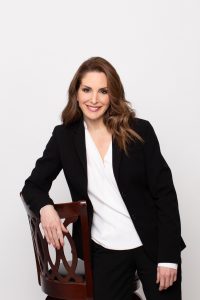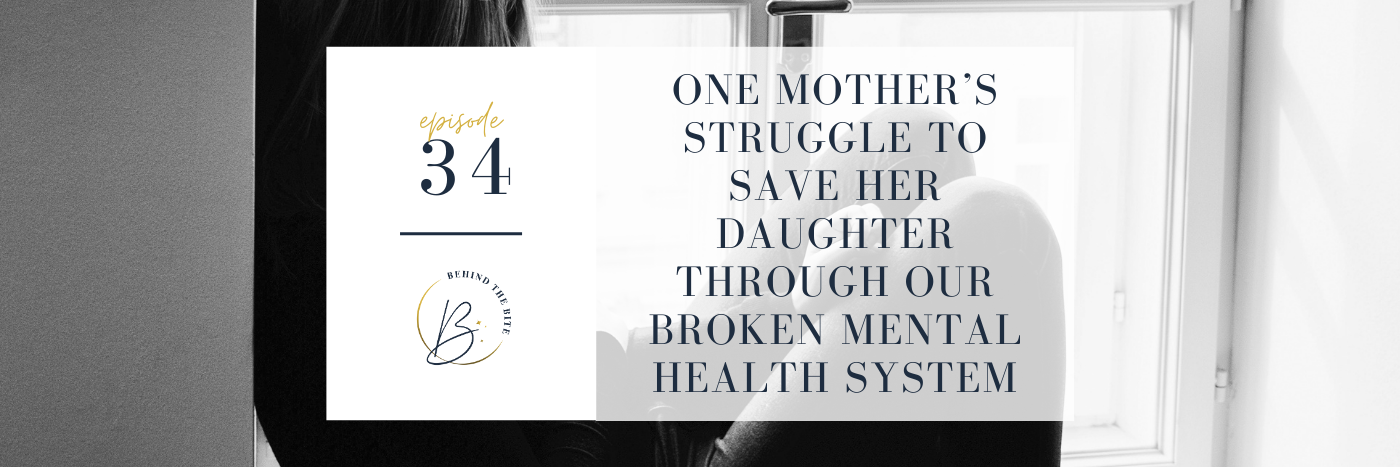MEET ANNELISE LUCAS
Annelise Lucas lives just outside of Charlottesville, VA. She is the mother of three children: Logan, Jojo, and Jake, Her background is in K-12 education but transitioned to higher ed and now works for UVA in development.
Her daughter has been struggling with ED AN for years but to the point of requiring more professional intervention for almost a year.
IN THIS PODCAST
- Where can parents start?
- “Intentional exclusion”
- Advice for parents
Where can parents start?
Annelise started close to home. Her daughter’s therapist was local and introduced both mother and daughter to a local dietician who could share resources with them. Through these resources, Annelise could learn more about the different levels of care and intervention.I contacted the dietician and the therapist and got a list of centers that they had experience working with, and I just started calling centers. I called four or five different centers and through those calls I learned a lot about treatment. (Annelise Lucas)Simultaneously, Annelise learned how inaccessible this treatment was for all the people who needed it. Most centers had eight-week waiting lists and so finding the place where her daughter could receive treatment was a struggle at first. Many parents are forced, due to the pressured system, to look for care for their child in other states. Luckily, Annelise found a center that was a three-hour drive away and managed to secure a spot for her daughter but unfortunately, insurance stepped in and made it impossible for her daughter to receive care because it was out of state and the insurance would not cover it.
“Intentional exclusion”
The reason why it is really important to know that is because my employer had no idea so when they are going through configuring plans for businesses, I’m sure that there are people involved [that say] “if we take out this … really expensive piece, chances are this one wouldn’t be needed” the problem is [that down the line] …. I had my insurance company saying: “she’s too sick for PHP but she’s not sick enough for in-patient, and we’re not going to cover that”. (Annelise Lucas)This broken system is what leaves parents struggling to find the proper help and care for their children. Often the insurance companies will try to save money on the front end but in doing so, and by cutting out crucial care for patients, down the line the medical costs will increase on the back-end due to the lack of adequate care in the beginning.
Advice for parents
It is incredibly difficult for parents to see their children suffering and so many of them internalize the stress that their children are under, feeling like they have failed somehow, or that there is something that they missed out on doing that has caused this stress for their child. However, this is not true. The hard-to-hear but helpful advice that Annelise received from her daughter’s therapist is that:You are not equipped. This is not for you to know how [because] this is beyond parenting, you are not an expert in this and it is unreasonable [to have] the expectation that it should be something that you should be able to quietly and internally navigate, [because] it’s not. (Advice from a therapist)Parents can band together to support one another because they go through the disease with their children as their support systems, and therefore it can be beneficial for parents to lean on one another for encouragement and comfort.
USEFUL LINKS
- A HEALTHY DOSE OF REALITY ABOUT HEALTH, WEIGHT, AND FOOD WITH EXPERT DR. GAUDIANI | EP 33
- Sign up for the free Behind The Bite Course
- Practice of the Practice Network
MEET DR. CRISTINA CASTAGNINI
 I am a licensed Psychologist and Certified Eating Disorder Specialist.
While I may have over 20 years of clinical experience, what I also have is the experience of having been a patient who had an eating disorder as well.
One thing that I never had during all of my treatment was someone who could look me in the eye and honestly say to me "hey, I've been there. I understand".
Going through treatment for an eating disorder is one of the hardest and scariest things to do. I remember being asked to do things that scared me. Things I now know ultimately helped me to get better. But, at the time, I had serious doubts and fears about it.
If even one of my providers had been able to tell me "I know it's scary, but I had to go through that part too. Here's what will probably happen...." then perhaps I would not have gone in and out of treatment so many times.
My own experience ultimately led me to specialize in treating eating disorders. I wanted to be the therapist I never had; the one who "got it".
I will be giving you my perspective and information as an expert and clinician who has been treating patients for over 2 decades.
But don't just take my word for it...keep listening to hear the truly informative insights and knowledge guest experts have to share.
I am so happy you are here!
I am a licensed Psychologist and Certified Eating Disorder Specialist.
While I may have over 20 years of clinical experience, what I also have is the experience of having been a patient who had an eating disorder as well.
One thing that I never had during all of my treatment was someone who could look me in the eye and honestly say to me "hey, I've been there. I understand".
Going through treatment for an eating disorder is one of the hardest and scariest things to do. I remember being asked to do things that scared me. Things I now know ultimately helped me to get better. But, at the time, I had serious doubts and fears about it.
If even one of my providers had been able to tell me "I know it's scary, but I had to go through that part too. Here's what will probably happen...." then perhaps I would not have gone in and out of treatment so many times.
My own experience ultimately led me to specialize in treating eating disorders. I wanted to be the therapist I never had; the one who "got it".
I will be giving you my perspective and information as an expert and clinician who has been treating patients for over 2 decades.
But don't just take my word for it...keep listening to hear the truly informative insights and knowledge guest experts have to share.
I am so happy you are here!


Comments